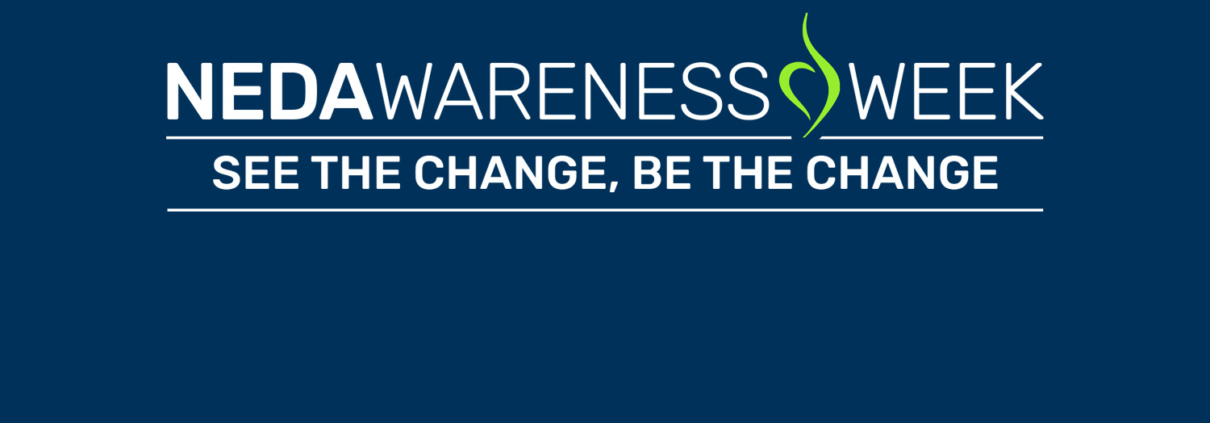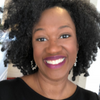No More Margins: Centering the Stories of Black Women with Eating Disorders
Black girls don’t have eating disorders.
That lie reverberated throughout my adolescence and young adulthood. There were no words for one’s struggle with purging. Or to name and discuss the excessive nighttime eating that comforted after the stress of a longtime day was done. Or to describe my relationship with food when my desire is not to be thin, just to carry a little less of me. There is no way we could have an eating disorder. That was reserved for White girls.
These misperceptions continue to follow many in my community. This misinformation affects the care we receive in eating disorder clinics, and the screening that may or may not be received in a doctor’s office.
What will it take for us to be seen? How do we find our way from the margins to the center of this discussion?
We start with the truth.
Black women do indeed have eating disorders, many of which can be influenced by racism, stress, trauma, and poverty. Though a preoccupation with achieving extreme thinness may not be the focal point of many of our efforts, we have similar or higher risk of struggling with binge and overeating. Food is a culturally-acceptable tool to quell our pressures and stressors, and because of this, an eating disorder can often hide in plain sight. Also, because eating disorders are not well-defined, those closest to us may not know what we need to get better.
We need more clinicians and treatments that focus on Black women.
We must find a way to fix the pipeline to achieve a world where more clinicians are prepared and trained to treat eating disorders in Black women. Trained eating disorder clinicians often come from a few select training fields, leaving those outside these disciplines limited in their ability to achieve the training to feel equipped to help those with disordered eating behaviors. We know that feeling seen in therapy matters. Having clinicians who are trained to cater to the needs of Black women is essential. When we experience marginalization in every other area of society, having a safe space in the place where we go to seek help is essential.
We create assessments that ask the right questions.
Often, ED go undiagnosed because the script many of our clinicians use is colorblind. Questions do not account for experiences with colorism, hair, racism, acculturative stress, and poverty—all of which may influence one’s experience with eating behaviors. If we don’t ask the right questions, we may miss our experiences of disordered eating.
We create culturally relevant programs that speak a familiar language.
If the word “eating disorder” may not be understood in certain communities, we must find a way to communicate the most important truths that are needed to get people the help they need. We must use culturally-relevant points of care, such as primary care offices, and community mental health clinics. We know that getting to eating disorder treatment has challenges; how can we create digital programs that help people access treatment or consider the expanded use of self-help treatment programs? We have ways to help people. We must use them.
We can find a way to make sure that all with eating disorders do not go without the help they need. We must find a way to center those who have been on the margins, taking care to create pathways to equitable treatments and care.
Dr. Rachel Goode is an Assistant Professor at the School of Social Work and in the Center for Eating Disorder Excellence at the University of North Carolina at Chapel Hill. She received her PhD, MPH, and MSW degrees from the University of Pittsburgh. Her research interests include developing, implementing, and evaluating interventions to address health disparities in obesity and disordered eating outcomes. Additionally, Dr. Goode is a licensed clinical social worker, and has practice experience with the treatment of eating disorders and obesity among clients in university counseling centers, and community-based mental health agencies. Her ongoing projects include a NIH Career Development Award (K23129832) to develop a culturally-relevant digital health treatment for binge eating for Black women. She is also a past Feeding Hope Grant recipient from the National Eating Disorders Association for a project designed to test the feasibility of an appetite awareness program and lifestyle intervention to prevent binge eating disorder among African American women in primary care.





